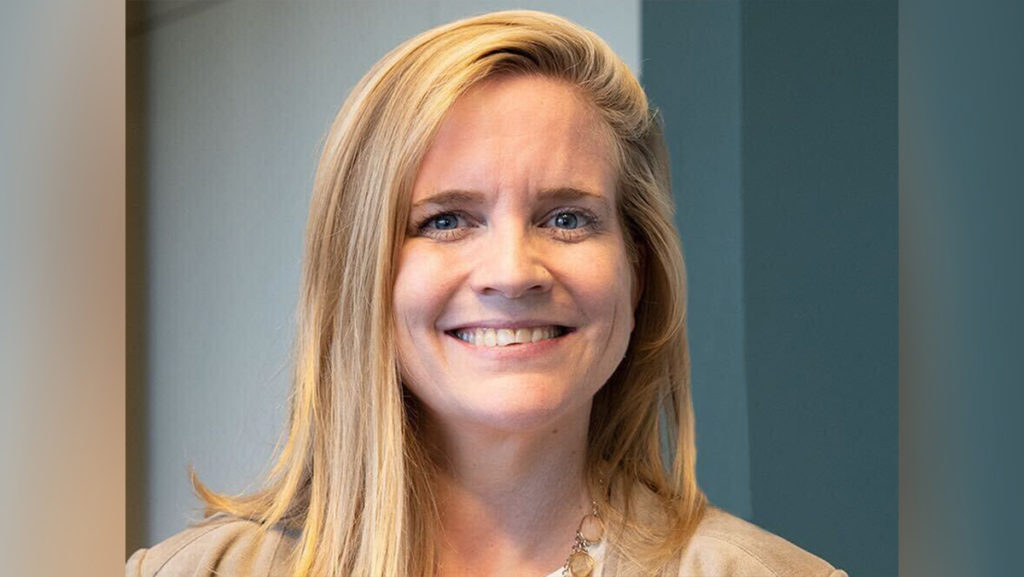Ithaca College alum Emily Mallar ’03 works for the Cayuga Health System as the senior director of care transitions. During the COVID-19 pandemic, Mallar and her team assisted the Tompkins County Health Department by calling residents who tested positive for COVID-19.
The team provided residents with resources for quarantining and receiving necessary healthcare. In February 2021, Mallar was named “Essential Worker of the Year” by the Tompkins County Chamber of Commerce.
Staff writer Joshua Pantano spoke with Mallar about her experiences as an essential worker.
This interview has been edited for length and clarity.
Joshua Pantano: Could you talk a little bit about the work that you do?
Emily Mallar: I have a new position here at the health system, but I’ll just start by saying that for the last eight years, I’ve been the director of care management for Cayuga Health Partners, which is a broader healthcare network in the Ithaca surrounding area. And then my latest title, which is inclusive of that role still, is senior director of care transitions for Cayuga Health Systems. So I still have my roles like director of care management for the network and the practices within, but I’m also overseeing some things on the inpatient side of things, specifically case management, patient progression, social services, utilization review and CDI [clinical documentation improvement].
JP: What started your interest in health work?
EM: From a very young age, I always did well in math and sciences. That was sort of natural to me. I remember taking an anatomy class in high school and just loving everything about that. I came to Ithaca initially as a physical therapy student. I always had an interest in, like I said, the sciences and anatomy, and physical therapy stuck out to me early on. That’s what essentially brought me to Ithaca. My sophomore year, I actually got very ill and had to withdraw from classes and take a year off. My long-term outcomes were a bit unknown, so when I came back the following year, I changed my major to healthcare administration.
JP: Was it difficult being an essential worker during the COVID-19 pandemic?
EM: For sure. I think it’s highlighted across mainstream media, but the crisis in terms of competing for nurses with the advent of the pandemic, we’re no stranger to that, as are any of the health systems in our region. In terms of the way we practice, our ability to move patients across the care continuum into the appropriate levels of care has been impacted by the pandemic with other healthcare systems on diversion. We’ve had patients come to us from as far as four hours away because we were the closest available ICU bed. And when you think of the hardship on that patient’s family who already have a patient that’s sick and in the ICU, that adds stress and strain on them. We’ve been very fortunate in that we’ve been able to manage and sustain it and not divert patients in the way that many of our health systems around us have.
JP: What is most rewarding and most challenging about your work?
EM: The challenge has been that oftentimes the things we know we needed to do yesterday take a while to thoughtfully implement and do right. Oftentimes there are so many moving parts. It’s not like we can close the doors one day, fix everything we need to fix, and reopen tomorrow with our processes hardwired and in place. We’re building the plane while we’re in the air, so it is a challenge in healthcare because we’re caring for people’s lives while we’re trying to get better at doing it. That can be a challenge. I think the most rewarding thing, at the end of the day, is the fact that we are impacting people’s lives. In this community, we are a small community health system, and we’ve managed to remain as such, but we really excel at the things we do offer in terms of services. That’s something to be really proud of.
JP: What takeaways do you offer to students interested in your field?
EM: I always try to encourage people. If they have an interest in something, they should explore it. I mentioned my career path being sort of “fly by the seat of my pants.” There are folks that I graduated with who knew they wanted to be a CEO of a hospital or healthcare system. I didn’t quite know where my path might lead at the time when I was in college and I think that’s okay. Sometimes you find it along the way. You end up where you’re supposed to be. I learned at a young age that our time here is finite and that’s all the more reason why it’s important to put your good where it’ll do the most. That’s what I’ve tried to do, and that’s what I try to instill in others.








